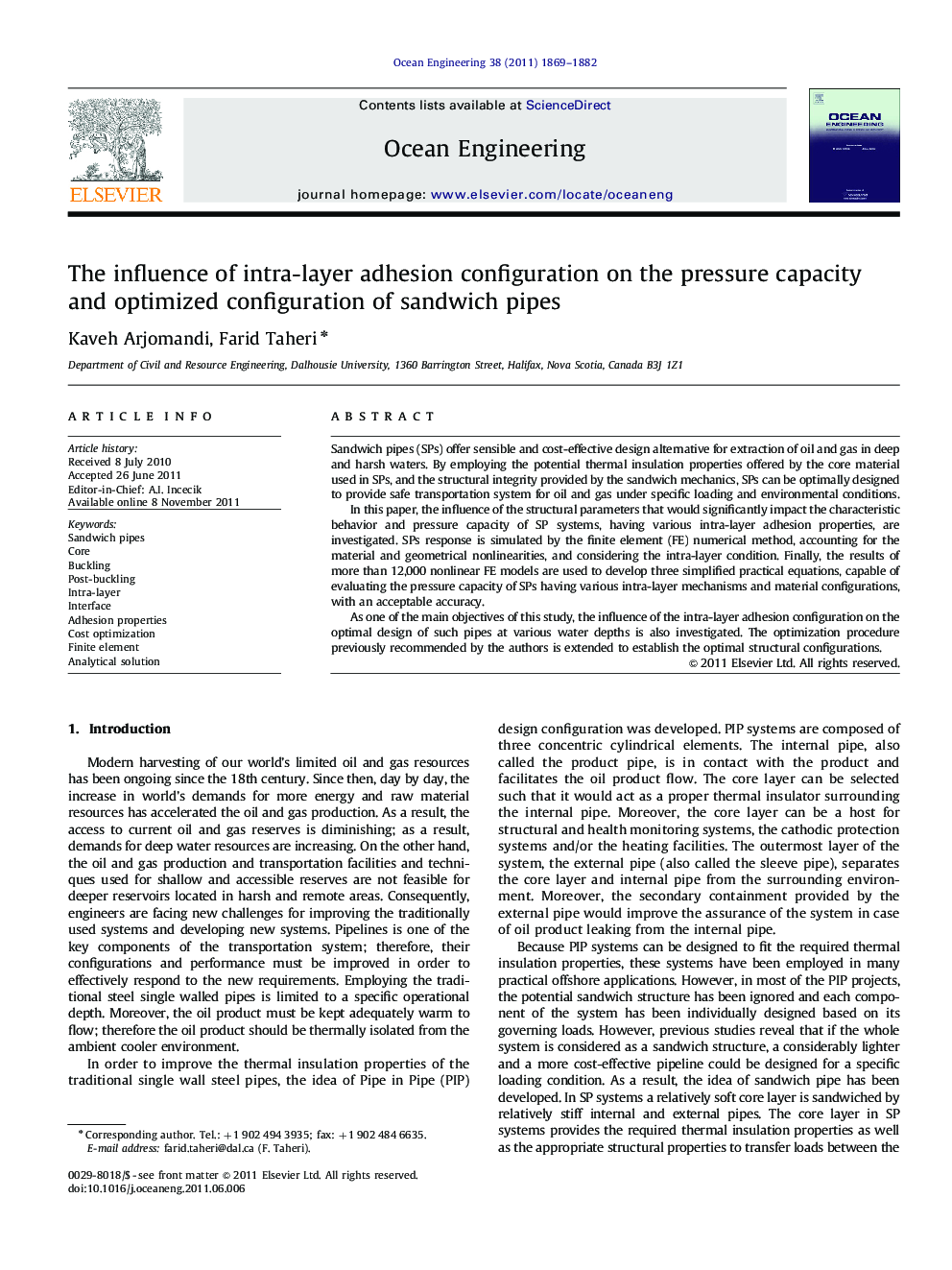| Article ID | Journal | Published Year | Pages | File Type |
|---|---|---|---|---|
| 1726352 | Ocean Engineering | 2011 | 14 Pages |
Sandwich pipes (SPs) offer sensible and cost-effective design alternative for extraction of oil and gas in deep and harsh waters. By employing the potential thermal insulation properties offered by the core material used in SPs, and the structural integrity provided by the sandwich mechanics, SPs can be optimally designed to provide safe transportation system for oil and gas under specific loading and environmental conditions.In this paper, the influence of the structural parameters that would significantly impact the characteristic behavior and pressure capacity of SP systems, having various intra-layer adhesion properties, are investigated. SPs response is simulated by the finite element (FE) numerical method, accounting for the material and geometrical nonlinearities, and considering the intra-layer condition. Finally, the results of more than 12,000 nonlinear FE models are used to develop three simplified practical equations, capable of evaluating the pressure capacity of SPs having various intra-layer mechanisms and material configurations, with an acceptable accuracy.As one of the main objectives of this study, the influence of the intra-layer adhesion configuration on the optimal design of such pipes at various water depths is also investigated. The optimization procedure previously recommended by the authors is extended to establish the optimal structural configurations.
► The influence of the parameters that significantly impact the response sandwich pipe is considered. ► Both internal pressure and intra-layer adhesion properties are investigated. ► The finite element (FE) method is used for the analysis, accounting for the material and geometrical nonlinearities.
